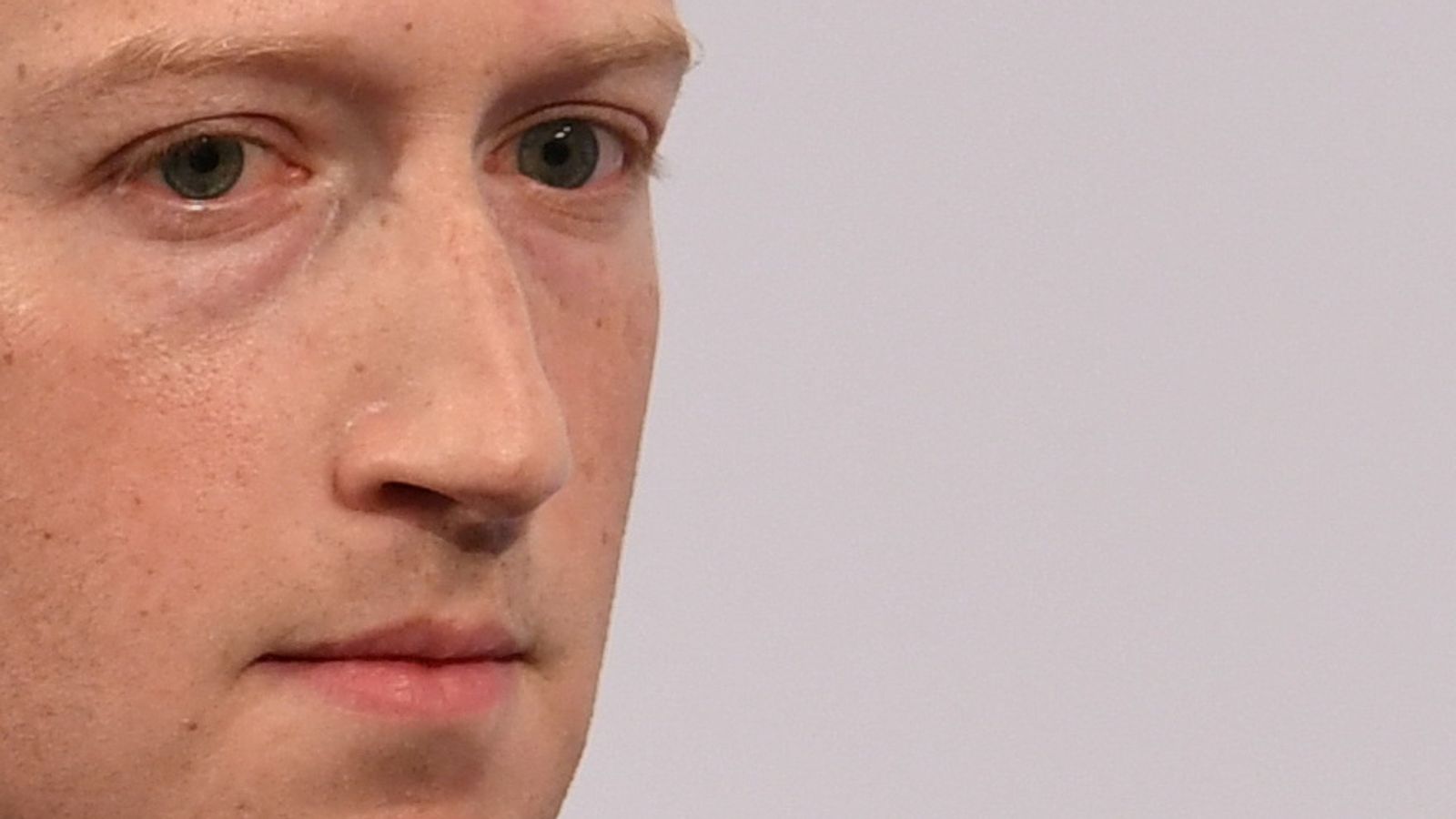“An absolute train wreck.” “One big gamble.” “A long and painful road.”
Just some of the recent glowing endorsements of Mark Zuckerberg’s pursuit of metaverse glory – but none which appear to have deterred him.
The Facebook founder is taking an all-in approach to his vision of tomorrow, wholly convinced that in the not too distant future, most of us will be regularly strapping on a headset to step into his virtual world.
Whether you want to play a game, join a meeting, teach a class, or hang out with your friends, he’s convinced the metaverse will quickly become the best place to do it.
With a net worth of $36bn (£31.7bn), ‘go big or go home’ is a stance he can afford.
His staff, as evidenced by the thousands of job cuts today, can’t.
“One of the problems with the metaverse is he’s made everything a priority,” Nicky Danino, principal lecturer in computer science at the University of Central Lancashire, told Sky News.
“He’s like Musk, one of the things with him is he’s confident in what he believes in and will go ahead with it.
“Visionaries have these big visions, maybe he needed to start small and build up, [because] I don’t think people understand what the value of the metaverse is supposed to be yet.”
‘Supersized and terrifying losses’
Professor Danino admits she’s an optimist when it comes to the potential of the metaverse, offering “amazing opportunities and possibilities” in education and training settings in particular.
But investors like certainty – and an entirely new platform encroaching on the realm of science-fiction, at a cost of billions upon billions of dollars, isn’t that.
The lay-offs come after Meta – the parent company of Facebook, Instagram, and WhatsApp – suffered what were described as “supersized and terrifying” financial results last month.
Investors rushed to dump stock in the firm as Reality Labs, the division building the metaverse, reported losses of £3.16bn between July and September.
Brad Gerstner, CEO of Altimeter Capital, warned: “Meta has drifted into the land of excess – too many people, too many ideas, too little urgency.”
Insider Intelligence analyst Debra Aho Williamson told Meta it needed to focus less on the metaverse and more on fixing its core business.
Zuckerberg was defiant, telling his increasingly nervy investors: “I get that a lot of people might disagree with this investment, but from what I can tell, I think this is going to be a very important thing.
“People will look back a decade from now and talk about the importance of the work being done here.”
‘The metaverse will happen – it’s just a matter of when’
Those with their tech hats on are inclined to agree.
Microsoft is backing the metaverse for workplaces, making its Office suite fully compatible, and academics like Professor Danino are fans, too.
Cudo founder Matt Hawkins considers the metaverse “the natural next stage” of a transition that’s seen Gen Z grow into an increasingly digital world, albeit one that should be decentralised rather than consolidated by Meta.
And John Needham, president of esports at gaming giant Riot Games, says it’s “inevitable”.
“Our society is going to be a virtual existence more and more every day,” he told Sky News.
“It will happen. It’s just a matter of when.”
But for now at least, Zuckerberg is facing up to the fact that some of “the work being done here” includes culling a large chunk of Meta’s 87,000-strong workforce.
Whether the metaverse comes to fruition or not, today’s news is another sign it’ll be a long and painful road indeed.


